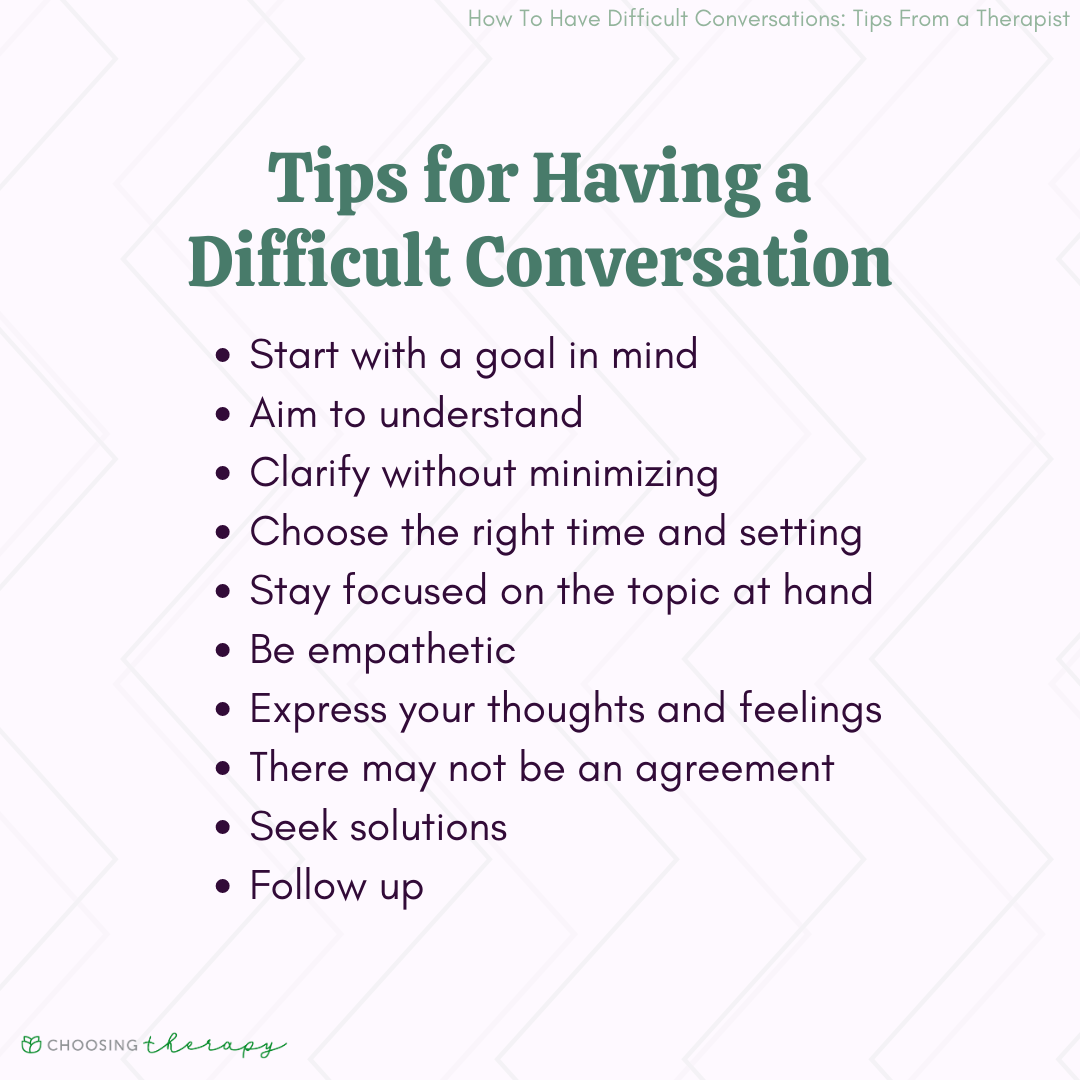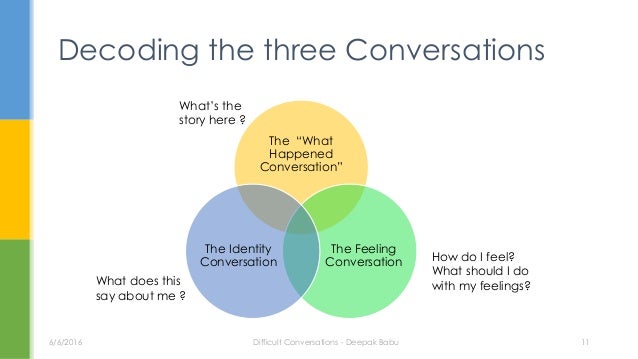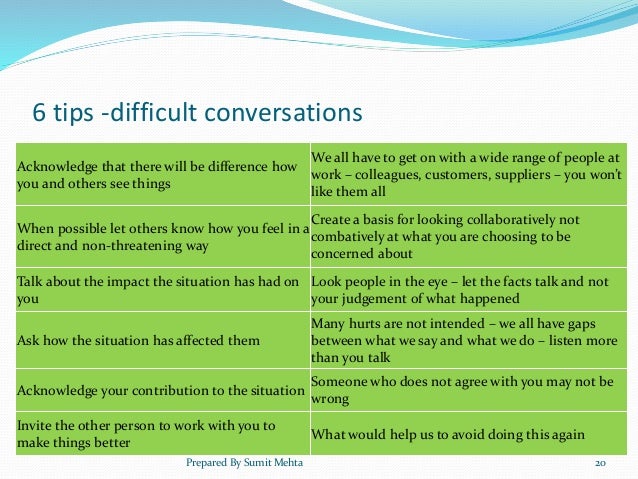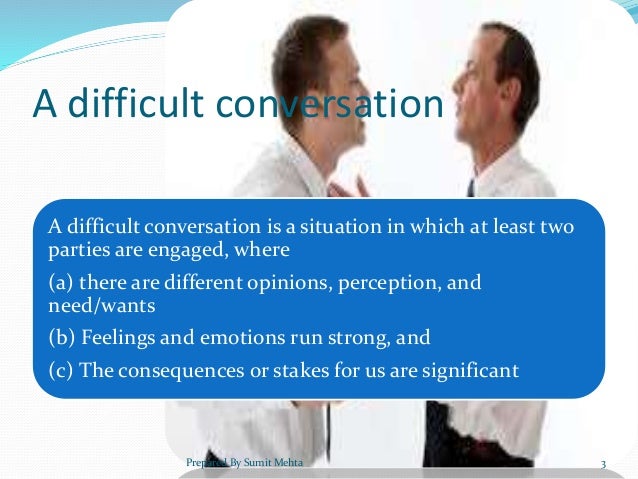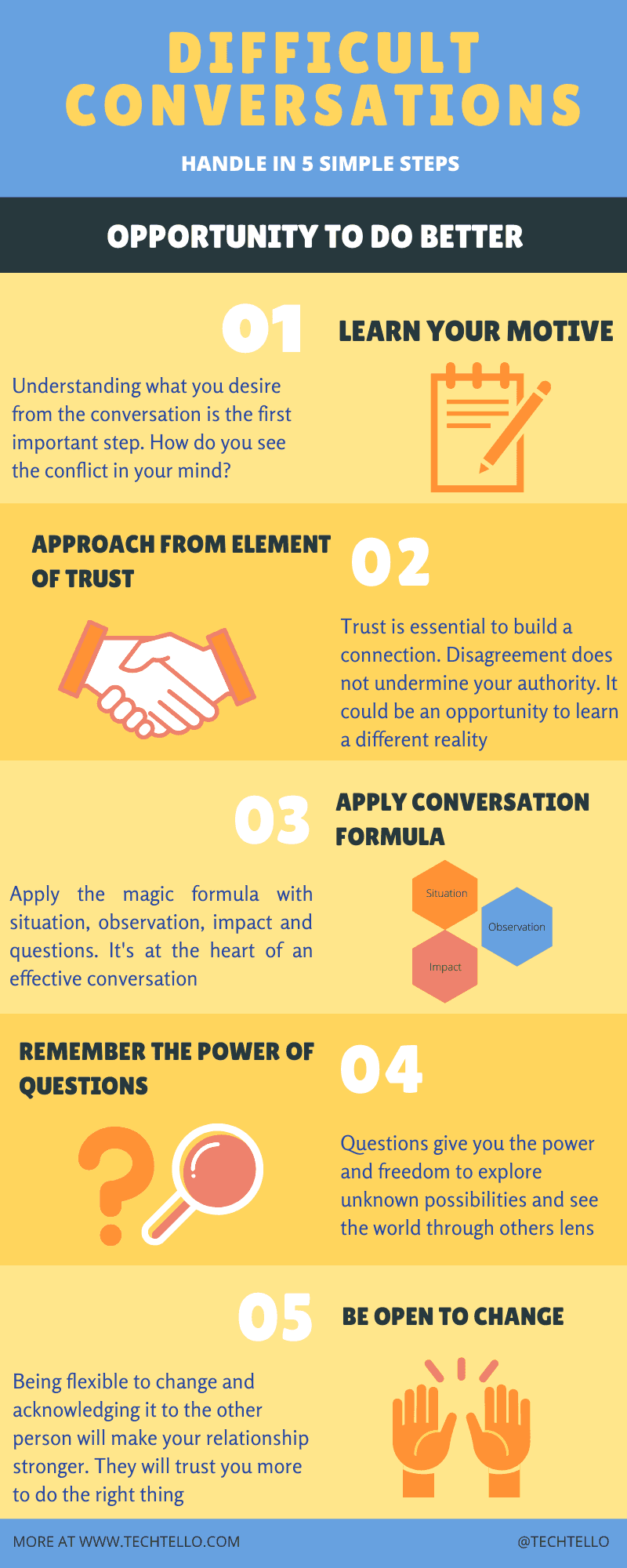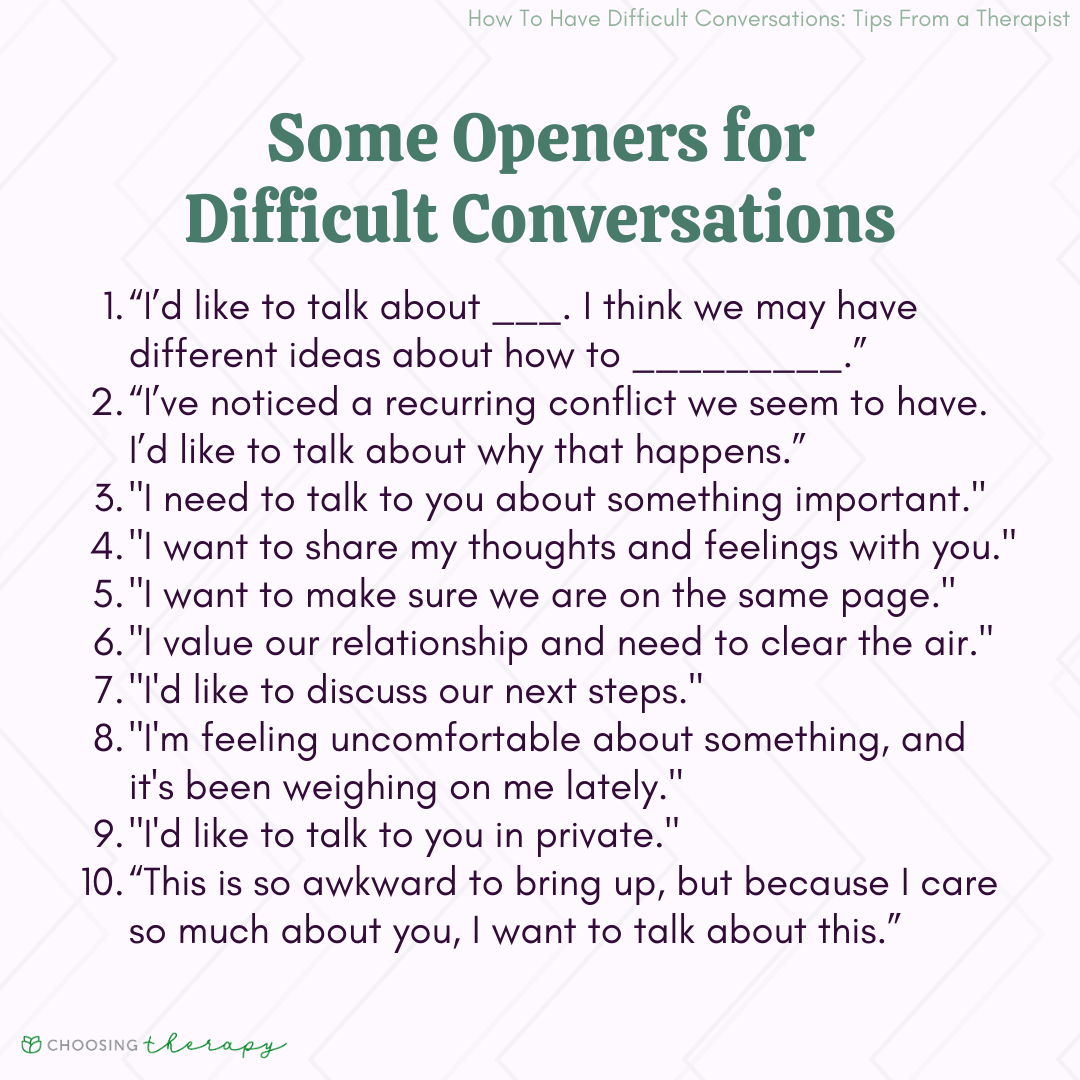How Do You Handle Difficult Conversations

Imagine you’re sitting across from a colleague, the air thick with unspoken tension. Their recent performance has dipped, impacting the team's morale, and you're the one tasked with addressing it. The clock is ticking, and the weight of the impending conversation feels heavy. But what if this moment, instead of being dreaded, could be transformed into an opportunity for growth and strengthened understanding?
Navigating difficult conversations is a vital skill, both personally and professionally. These dialogues, often laden with emotion and potential conflict, are inevitable. Learning how to approach them with empathy, clarity, and a focus on solutions can transform challenging situations into opportunities for understanding and growth, fostering stronger relationships and more productive outcomes.
Why Difficult Conversations Matter
Difficult conversations are crucial. They address issues that, if left unaddressed, can fester and damage relationships, productivity, and overall well-being. According to a study by VitalSmarts, companies where employees feel comfortable addressing difficult issues experience significantly higher employee engagement and retention rates.
Ignoring problems doesn't make them disappear. It allows resentment to build and performance to decline. Instead, approaching these conversations proactively and skillfully allows for constructive dialogue and resolution.
Preparing for the Conversation
Preparation is key. Before diving in, take time to reflect on your own emotions and motivations. Are you approaching the conversation with a genuine desire to understand and find a solution, or are you driven by anger or frustration?
Identify the specific behaviors or issues you want to address and gather relevant facts. Avoid relying on hearsay or assumptions; instead, focus on concrete examples and measurable data where possible. This approach helps to keep the conversation objective and solution-focused.
Setting the Stage
The environment matters. Choose a private and neutral setting where both parties feel comfortable and safe. Avoid scheduling the conversation at a time when either of you is likely to be stressed or distracted.
Start by expressing your intention to have a constructive dialogue. Use "I" statements to express your concerns and avoid accusatory language. For example, instead of saying "You're always late," try "I've noticed you've been late to several meetings recently, and I'm concerned about the impact on our project deadlines."
During the Conversation: Active Listening and Empathy
Active listening is crucial. Pay close attention to what the other person is saying, both verbally and nonverbally. Show that you're engaged by making eye contact, nodding, and summarizing their points to ensure you understand.
Empathy allows you to step into the other person's shoes and understand their perspective, even if you don't agree with it. Try to identify the underlying emotions driving their behavior and acknowledge their feelings. This can help to defuse tension and create a more collaborative atmosphere.
Validate their feelings by saying things like, "I can understand why you're feeling frustrated," or "It sounds like you're under a lot of pressure right now." This doesn't mean you're condoning their behavior, but you're acknowledging their experience.
Finding Solutions and Moving Forward
Focus on solutions. Once you've both had a chance to express your perspectives, shift the focus to finding a way forward. Brainstorm potential solutions together, and be willing to compromise.
Establish clear expectations and create a plan of action. This might involve setting specific goals, outlining responsibilities, or scheduling follow-up meetings to track progress. Documenting the agreed-upon plan can help to ensure accountability and prevent misunderstandings.
End the conversation on a positive note. Thank the other person for their willingness to engage in the dialogue, and express your optimism about the future. Reinforce your commitment to the relationship and your belief in their ability to succeed.
The Long-Term Impact
Mastering difficult conversations is an investment. It strengthens relationships, boosts productivity, and creates a more positive and supportive work environment. By approaching these dialogues with courage, empathy, and a focus on solutions, you can transform potential conflicts into opportunities for growth and understanding.
Remember, difficult conversations are a part of life. With practice and a commitment to effective communication, you can learn to navigate them with grace and achieve positive outcomes for everyone involved. Don't shy away from the challenge; embrace the opportunity to build stronger, more meaningful connections.
